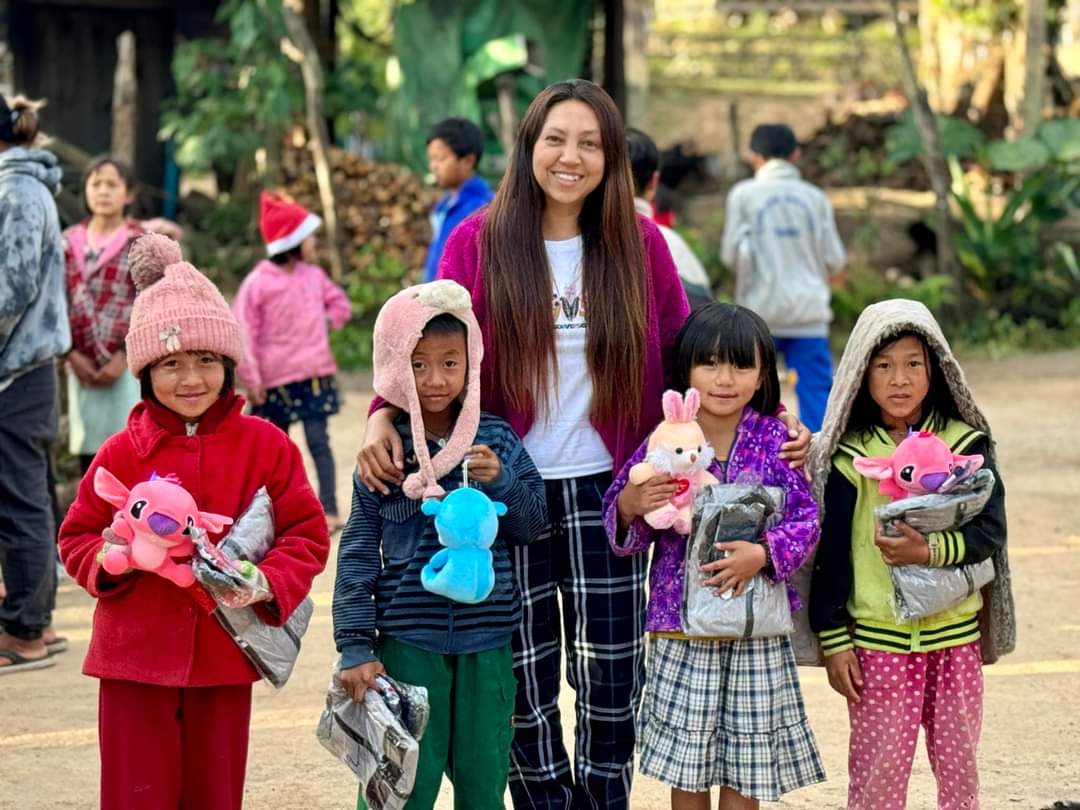Clean Yangon was launched in 2017 as a group of young volunteers determined to promote a clean city and reduce the impact of waste on the environment.
A few months after the February 2021 coup, the volunteers began helping civilians displaced by fighting in Karenni (Kayah) State. They receive no support from domestic or international NGOs, but are still able to provide healthcare and food to displaced people based on their “people helping people” model.
Ma Thinzar Aye, the group’s manager, recently told The Irrawaddy how Clean Yangon began assisting and advocating for people displaced by war and said the group is committed to helping displaced people until they can return to their homes.
“I would like to request from those who can live safely under shelter to help – with humanity – their displaced brethren across the country,” she said.
How has Clean Yangon been helping displaced people in Karenni State and when did you start?
We started helping displaced people in May 2021 in Chin State. We started [doing the same] in Karenni State in June 2021 after fighting broke out. We provided healthcare. People were already displaced by fighting by the time we arrived in Karenni State, so we started helping them. At the time, there were not many displaced people and only a few displacement camps. The number of displaced people has surged this year. There are hundreds of thousands of displaced people now and more than 100 camps [for them].
We provide shelter and help displaced people build tents and latrines in Karenni State. We provide basic food, including rice. We also provide teaching aids for children and build classrooms at displacement camps. Children have psychological trauma, so we tell them stories, play and paint with them to help them get over the trauma.

We also provide adults and children with nutrition. Meat is extremely scarce here. Displaced people have no income, so they rarely eat meat. We go from camp to camp daily and give people breakfast, lunch and dinner.
We also provide healthcare services. [Some] displaced people suffer from chronic health problems like diabetes, high blood pressure and heart ailments. There are people who are on medication, and there are also many cases of seasonal flu and cold.
Why did your group decide to help displaced people?
Before the coup, we continuously engaged in public-welfare activities. We collected litter … as we worked for a clean environment. After the coup, people had their houses torched. In ethnic areas, people save money for many years to build their homes, and they save money by spending less on food. We wanted to do something for people who lost [everything]. So, we helped displaced people when we were in Chin State, and we continued to help them in Karenni State.
Are there any other groups helping displaced people in Karenni State?
There are local groups helping displaced people [there], but more people have been forced into displacement camps. Revolutionary groups are fighting to seize Loikaw [Town], and most of its residents have fled to Demoso [Town]. We can still feed displaced people for now [but] the number of displaced people keeps increasing. We will have to help them until they can return home. They have daily requirements.
Have international agencies provided support for Clean Yangon to help displaced people in Karenni State?
No non-governmental organization or international non-governmental organization is helping us. In Demoso, we are helping displaced people with support from individual donors and well-wishers at home and abroad. We are helping people with cash donated by our long-time patrons at home and abroad. It is people helping each other.
What does Clean Yangon plan to do in the future?
We will continue to do what we can for displaced people, and fulfill their health, education and social needs until the revolution is over.
Do you have a message you would like to share?
In the early days of the revolution, we said people only have each other. Today, there are still many people who are helping others. Some help openly. We are encouraged to see that they are helping displaced people. We are thankful to them. It is a tough time now. I would like to request from those who can live safely under shelter to help – with humanity – their displaced brethren across the country, including in central Myanmar and ethnic areas.

















